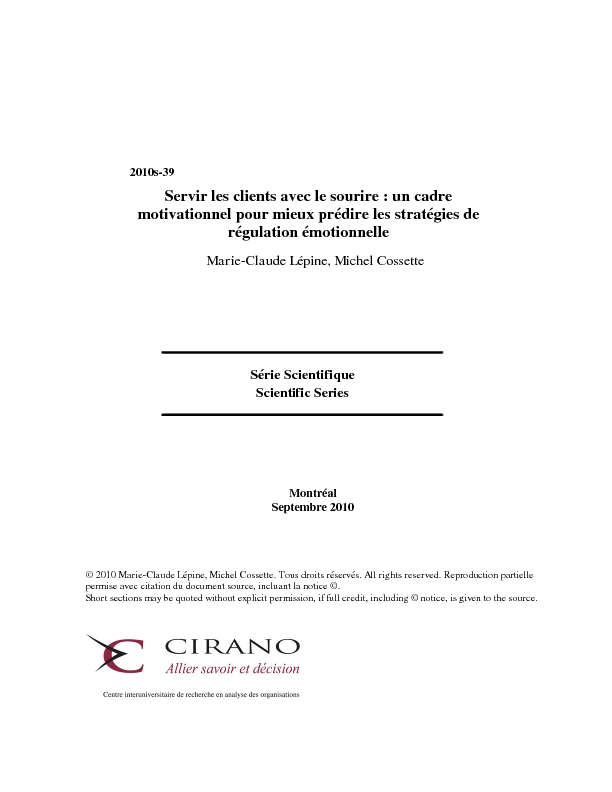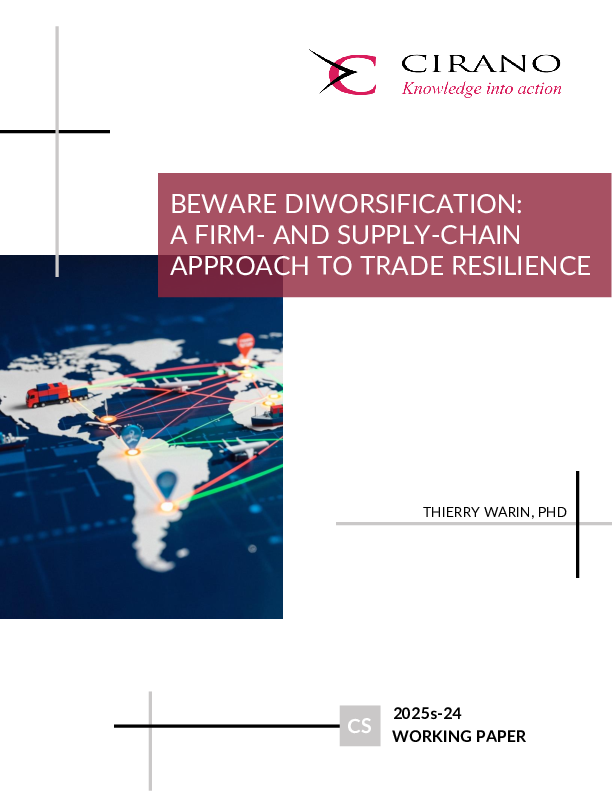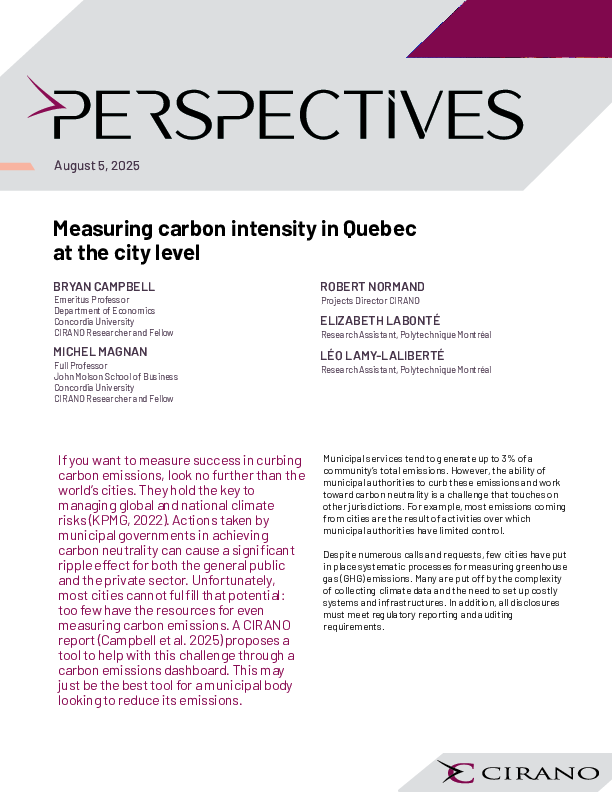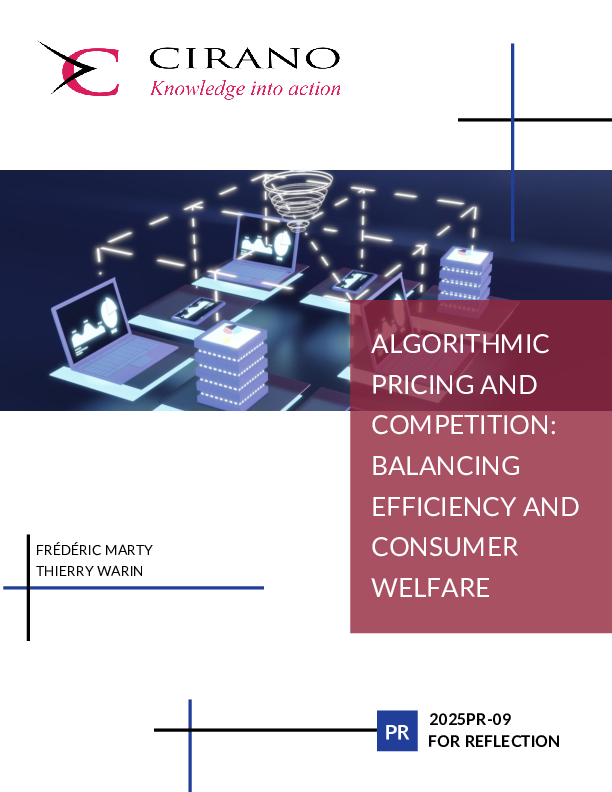Servir les clients avec le sourire : un cadre motivationnel pour mieux prédire les stratégies de régulation émotionnelle
Emotional labour, a requirement imposed on employees to express or suppress their emotions in their job, is an important occupational demand in customer service jobs. Emotion regulation strategies has important impacts on individuals (job attitudes, intention to quit and psychological health), but also on their organization (personnel turnover, service performance, customers' loyalty, etc.). Although motivation was proposed as an emotional labour predictor, measurement issues of this concept must be resolved. Consequently, the present study proposes and tests among employees working in interaction with customers (n = 223) a scale measuring motivation to regulate emotions at work. Confirmatory Factor Analyses supported globally the presence of the different types of motivation postulated by the Self-determination Theory (Deci & Ryan, 1985). Moreover, deep acting strategy was linked with the controlled motivation and to autonomous motivation, whereas surface acting was linked solely with controlled motivation.
[ - ]




